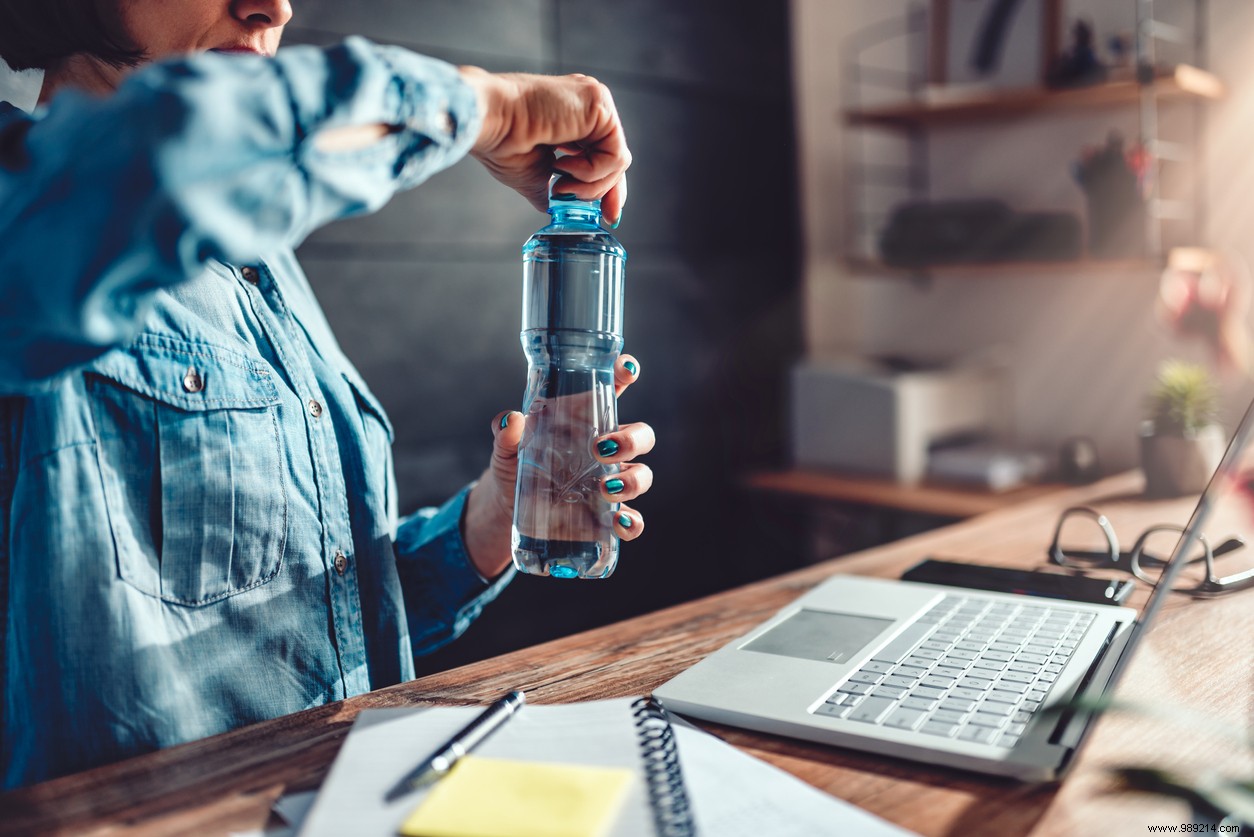Many of us have reused a single-use plastic bottle several times. However, that would be a bad idea. Indeed, some of these containers are particularly toxic and promote the development of bacteria.
Reusing plastic bottles to fill them with tap water is a very common gesture. Some people innocently think about the usefulness of these bottles and others try to avoid re-purchasing plastic over and over again . However, according to an article in GEO magazine, we should get rid of this bad habit.
Most plastic bottles have a number inside a small triangle. It tells us about the type of plastic that the manufacturer used. However, three plastics are very common:1, 2 and 7. Number 1 concerns polyethylene terephthalate (PET) which is used most of the time in the manufacture of water bottles, soda or even cups. 100% recyclable and requiring little electricity to manufacture , this one is rather ecological. However, its resistance to heat is quite low, facilitating the development of bacteria.
Number 2 is relative to high density polyethylene (HDPE), more solid and durable. In most cases, it is found in laundry detergent, soap and other containers with a capacity of 3.5 liters. Finally, number 7 concerns plastic materials (polycarbonate) which do not fall into any other category. However, some of these plastics are made to be reused, as is the case with baby bottles. However, these containers may contain bisphenol A (BPA), a major endocrine disruptor.

Although Bisphenol A has been banned in France for nearly ten years, the reuse of plastic bottles is still a concern. It is mainly about the risk of chemical leaching . By reusing these bottles, some of the chemicals in the container end up in the water. Studies on the subject do not all agree, but it could be that there is a question of contamination of PET bottles with antimony. Moreover, if there is no consensus on the toxicity of plastic bottles, this is not the case for the development of bacteria .
Science indeed agrees that reusable water bottles contain an extremely high amount of bacteria . Microbial growth is also very rapid. Thus, it is obvious that if the development of bacteria concerns reusable containers, single-use containers are not immune to the problem. Moreover, any reusable container must be cleaned regularly to avoid any proliferation of germs.